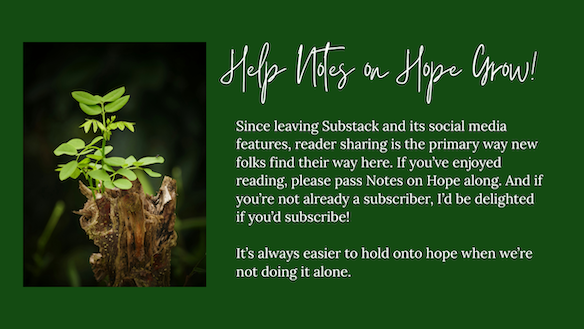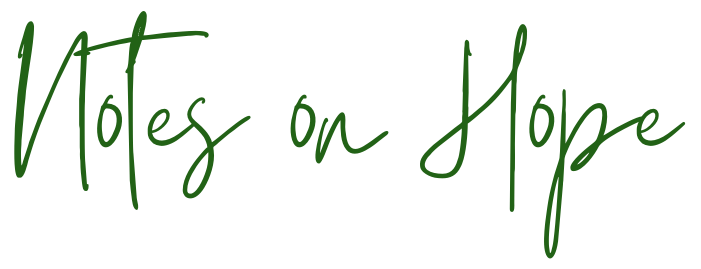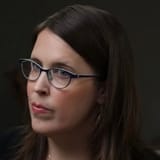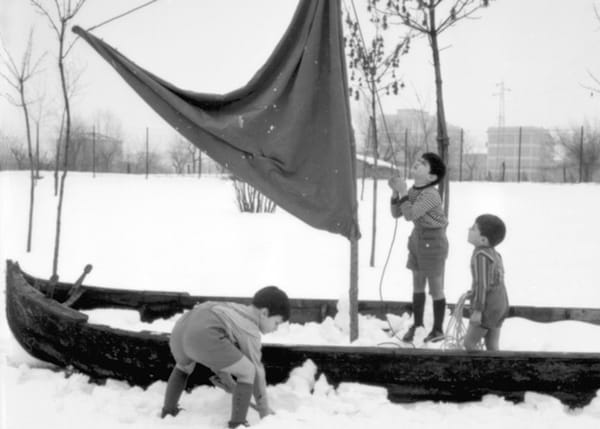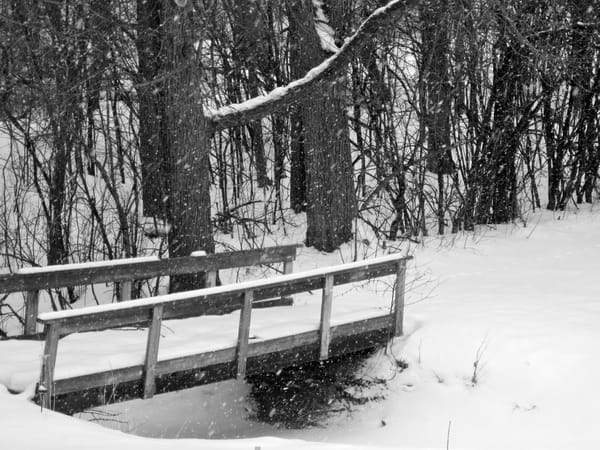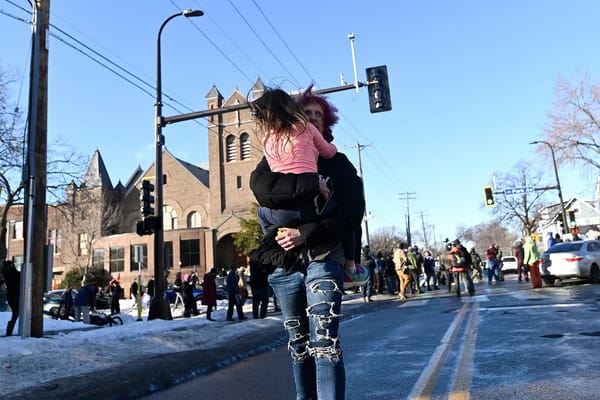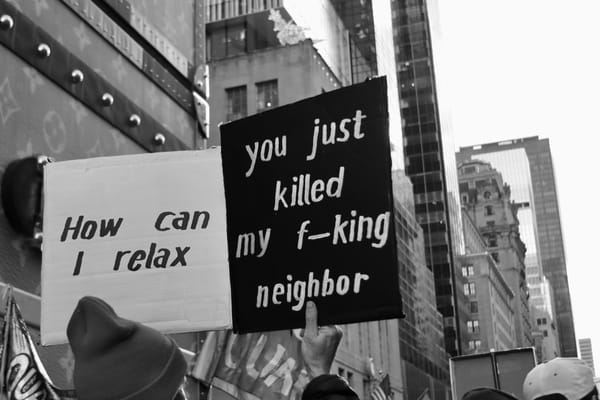The Love That's Possible
Even when everything appears to be going wrong

“I am a stranger
learning to worship the strangers
around me
whoever you are
whoever I may become.”
~June Jordan
In describing the experience of writing his book, Far from the Tree, which is about parenting children who, for a wide variety of reasons, fall outside the margins of societal norms, writer and researcher, Andrew Solomon, notes that people were surprised by his own decision to have children while doing this research. He says,
“I decided to have children while I was working on this project. And many people were astonished and said, ‘But how can you decide to have children in the midst of studying everything that can go wrong?’ And I said, ‘I'm not studying everything that can go wrong. What I'm studying is how much love there can be, even when everything appears to be going wrong.’”
I’ve been thinking about this statement a lot lately. There are two important components to Solomon’s reply, and both are essential anchor points, especially amidst our current realities. One is his use of the word “appears.” We usually perceive experiences as inherently negative when they are unexpected, when they place us outside the mainstream, when they divert us, without our permission, onto a path less traveled, or when they require us to grapple with instability or loss. Whether we are confronted with true risk and suffering, or merely find ourselves anticipating loss, as we face a reality we can’t yet fully comprehend, fear can easily color the way we categorize our experiences. We see shattered worlds in the darkness of the unknown.
Solomon doesn’t seek to silver-line difficult circumstances or personal cost. For example, among his many subjects, he interviews the parents of one of the Columbine shooters, underscoring the inescapable nature of such tragedies, which it would be cruel to attempt to describe otherwise, even as these parents manage to forge love and meaning from the loss. But he also interviews the parents of many children who fall outside of expectations in ways that can be perceived as heartbreaking more because of our own limitations of imagination than because they are inherently so. We tend, for example, to view disability, gender and sexual diversity, learning differences, and even prodigy from a vantage point of fear rather than imagination. But, when we are able to shift from a position of fear to seeking understanding, it becomes more possible to believe that there can be meaningful forms of identity and community, where we may once have seen only difference and isolation.
Sometimes, what we perceive as a cliff isn’t really a sheer drop but rather an opening to a wider universe of humanity and care. As the day-to-day realities of the news reflect an increasing derision of diversity and threaten the rights of human dignity, in addition to the rights of citizenship, our willingness to embrace the widest possible range of human experience and individual value couldn’t be more important. Solomon says,
“I don’t accept subtractive models of love—only additive ones. I believe that in the same way that we need species diversity to ensure a healthy planet, so we need this diversity of affection and family to strengthen the ecosphere of kindness.”
Most parents enter parenthood with a vision of who their child might be, what paths will be open to them, and what the experience of parenting will be like. However conscious or unconscious this envisioning may be, children beg that we look into the future, and in doing so we unavoidably construct an imagined reality. Accepting a divergence from this vision can create a kind of grief for lost possibility. Additionally, parents often recognize and fear the ways in which the world will inevitably meet difference with cruelty, so they seek to protect their children by trying to steer them toward paths that are familiar and more readily accepted. The desire to protect our children from hardship is deeply engrained in parenthood, but fear is almost always isolating. And, in the case of parenting, our desire to shield our children from the harshness of the world can lead us, instead, to isolate them from us, or even from themselves.
The wounds we inflict through fear of the unknown—through mistaking possibilities that require an expansion of imagination for “everything going wrong”—reveal the second important lesson of Solomon’s reflection on becoming a parent in the midst of studying extreme differences and difficulties. There is a uniquely exquisite love that can arise when our expectations collapse.
When parents, whose children don’t conform to the most easily accepted and normalized social identities, or whose children don’t align with the vision they’d conjured in the imaginative phase of becoming a parent, are able, nonetheless, to see the beauty and possibility in who their child really is, a deeper and more transformative version of love emerges.

I don’t think that this capacity to find new depths of love and possibility in the most unexpected or frightening moments of life is unique to parenting. This form of forged love and meaning can also be found in the moments when we are confronted with profound uncertainty or anxiety about our own adult paths—when a future we’d imagined is threatened, destabilized, or shattered.
While the particular form of love parents feel for their children may be unique, we also envision our own futures in much the same way we do our children’s, and it can be equally disorienting, frightening, and heartbreaking when those visions for our adult lives collapse. There are so many ways for our plans to go awry and for that which seemed certain to fall away—sometimes slowly, sometimes all at once. As the poet, Naomi Shihab Nye, reminds us,
“Before you know what kindness really is
you must lose things,
feel the future dissolve in a moment
like salt in a weakened broth.
What you held in your hand,
what you counted and carefully saved,
all this must go…”
And this, I think, is the heart of Solomon’s message and the primary reason his words have been ringing in my mind recently. On a collective level, there is so much we’d perceived as solid that now seems to be deeply uncertain. All of this collective instability, has extremely diverse and, in some cases, dire individual impact. When structures crumble, the consequences are not just data points, but lives.
Solomon doesn’t gloss over the true hardships that often accompany individual differences and diverted expectations—in our children or in our own lives—and he acknowledges the well-founded fear and tragedy that can occur, even as we struggle to forge meaning from adversity. Our capacity to construct meaning and imagine new possibilities doesn’t justify the harm that can lead to these revelations. As such, we can’t ignore the terror and suffering many people are experiencing right now at the individual or community level, or attempt to recast cruelty with rose tinted glasses, in an effort to quell our own discomfort. But, in the acknowledgment of harsh truths, we are faced with a choice. We can respond to uncertainty with fear and further close ourselves off, or we can locate within ourselves the specific capacity for love and meaning making that is possible in grief and fear, as we wring sense and new vision out of that which was previously unimaginable.
In the most destabilizing moments, there is always value in asking ourselves how such experiences are infused with meaning and in looking for the breaches that we can fill with care.
Fred Rogers’ guiding wisdom to children, following 9-11, to “look for the helpers,” is often cited in times of fear or unsteadiness. Whenever possible though, I think we have to take this advice a step further and ask ourselves how we might be helpers, even (or especially) when we ourselves are afraid. I think it is possible for both children and adults to cultivate this capacity, and I think it is actually the larger message that all of Rogers’ work imparted. In a 2002 commencement speech he said,
"When I say it's you I like, I'm talking about that part of you that knows that life is far more than anything you can ever see or hear or touch. That deep part of you allows you to stand for those things without which humankind cannot survive. Love that conquers hate, peace that rises triumphant over war, and justice that proves more powerful than greed."
As the writer, Clarissa Pinkola Estés, has said, “We are needed, that is all we can know.” It is essential not to lose sight of this simple truth, because fear of the unknown has a tendency to paralyze us or, at times, to make us lash out. But there is always someone who needs us, who might benefit from our outstretched hand or who could be further harmed by our indifference. Additionally, on an internal level, our own fear is usually quieted when we shift our energy toward what we can do to be of help and to mend or mitigate harm. Sometimes we can offer practical support, and sometimes all we can do is bear witness and offer our company and the power of a humanizing gaze.
When we look, even in the most shocking moments, for the crevices that we can fill with kindness, however small, and the fractures we can ease, we offer hope—to others and to ourselves. The fundamental gift of the kind of deeply accepting love that Solomon speaks about, emerging from fear and uncertainty, is that it entails a reimagining of the future, and this reimagining both requires and invites others into hope. This is something we can all extend, even when we feel profoundly powerless to change the current reality. We can alleviate isolation and reimagine the future. And, in doing so, we can ignite a spark of hope.
“I know I call in a time of great sadness and anger,
in a time of such fear: still,
if you can manage to answer
we might talk into the long winter night.
I will still be here when the lights on the bridge
go out and the pink flash at dawn disappears,
when the geranium’s single flower bends over double
under the weight of its own blossoming.”
Wishing you the wisdom to offer acceptance and the stamina to persist in kindness,
Alicia
A few things I found helpful and hopeful this week…
- What Dr. King Would Do in LA (Because This Is What He Actually Did)
- My Career Began on Zoom Five Years Ago. I Still Fell in Love with Teaching. by Alicia Simba
- The Delicious, Life-Saving Joys of the "Trad Trans" Lifestyle by Sandy Ernest Allen
- As a public service, Scientific American has created graphics documenting the vaccine recommendations of the Advisory Committe on Immunization Practices, as of its final meeting in 2024, before being disbanded and replaced, over the objections of the American Academy of Pediatrics.
- How to Find a Loved One After an Immigration Arrest: Guidance from the National Immigration Law Center
